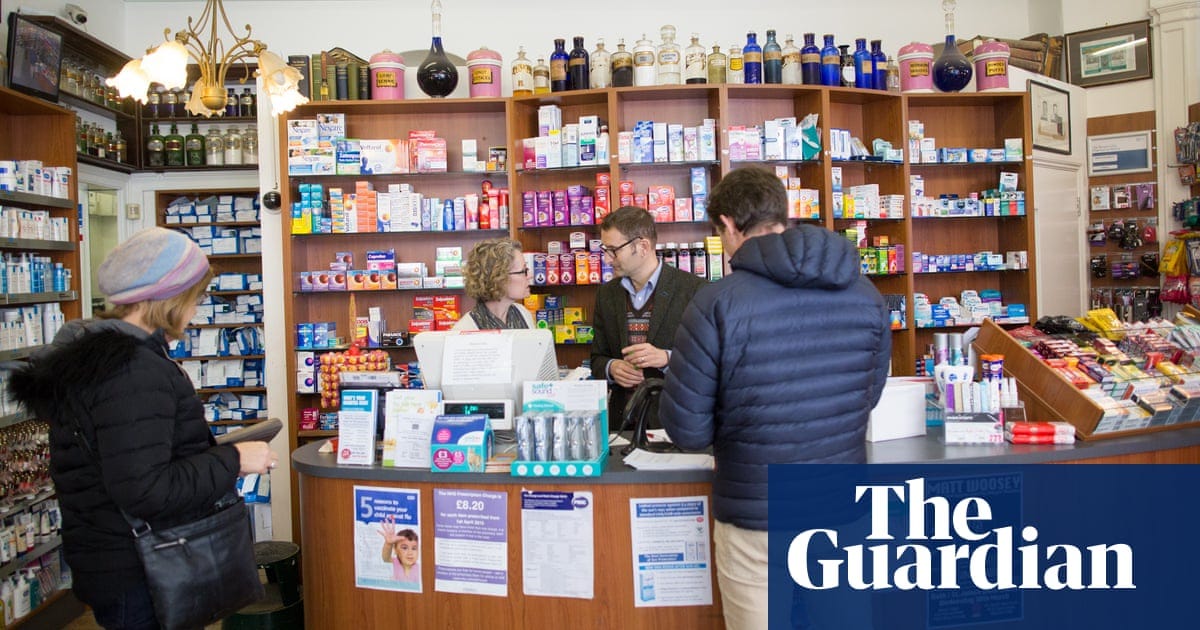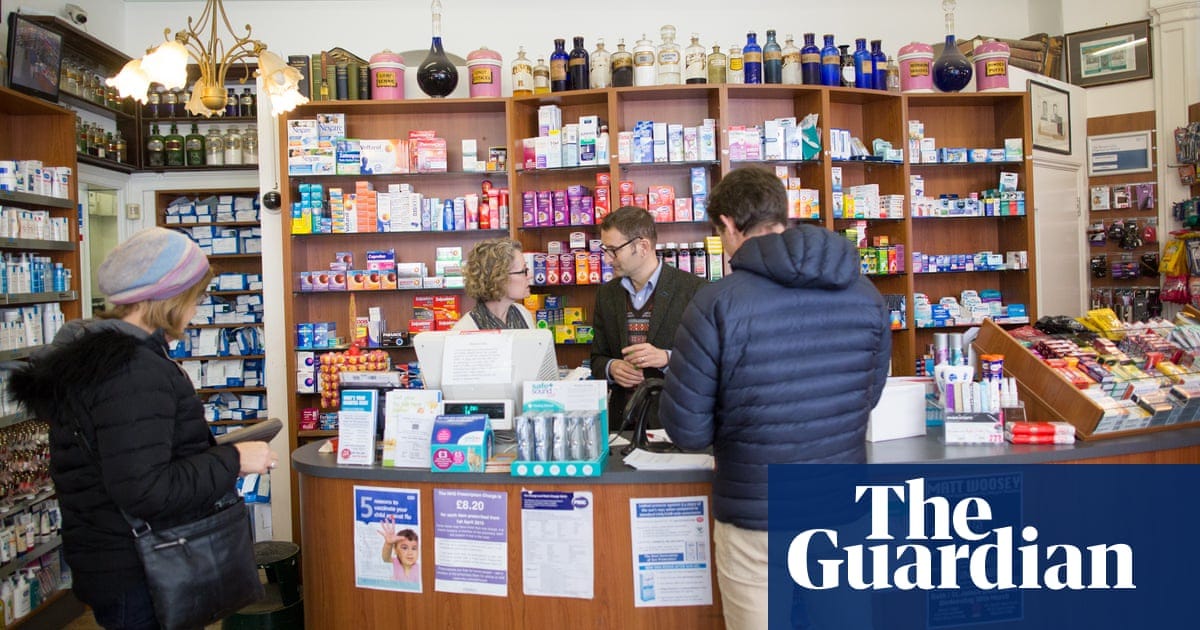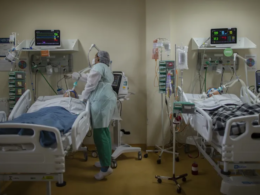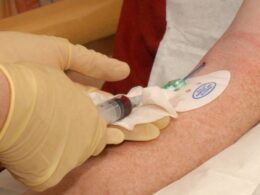The Health Strategist
research and strategy institute
for continuous transformation, of
in person health and digital health
Joaquim Cardoso MSc
Chief Research and Strategy Officer (CRSO)
9 de maio de 2023
ONE PAGE SUMMARY
The UK government and NHS England have proposed reforms to address the crisis in GP surgeries by allowing pharmacies in England to offer prescriptions for seven common conditions, along with additional services such as blood pressure checks and contraceptive pills.
The aim is to free up 15 million GP appointments over the next two years.
While the reforms have been welcomed by health leaders, concerns have been raised regarding the capacity of pharmacies to provide all the new services and the potential for patients to be redirected back to GPs.
There are also concerns about patient recognition of the seriousness of certain conditions.
The plan is supported by £645 million in funding over two years, with implementation expected in the winter following consultation with the industry.
However, critics argue that the proposal does not address the urgent need for more GPs in the healthcare system.
The reforms are part of a broader effort to reduce NHS waiting times, and Prime Minister Rishi Sunak sees them as evidence of action in response to recent electoral setbacks.
NHS England’s chief executive, Amanda Pritchard, believes the reforms will help transform care delivery and increase patient access to appointments.
Nevertheless, experts emphasize the importance of effective communication and availability of services across local areas.
Concerns have also been raised about the limited privacy space in some pharmacies for patients seeking prescriptions for sensitive conditions.
While the proposed reforms have positive elements, they are seen as insufficient to address the workload and workforce pressures faced by GPs.
The shortage of GPs in England has been an ongoing issue, and the number of pharmacies has slightly decreased in the past two years.
Critics, including opposition parties, argue that the government needs a comprehensive plan to recruit more healthcare professionals.
- The proposed reforms are seen as incremental changes rather than fundamental reform.

Pharmacies in England to offer prescriptions for seven conditions amid surgery crisis
The Guardian
Andrew Gregory
Tue 9 May 2023
Millions of patients in England will be able to get prescriptions for seven common conditions, plus more blood pressure checks and the contraceptive pill, directly from pharmacies under proposals to tackle the crisis in GP surgeries.
Those suffering from earache, a sore throat, sinusitis, impetigo, shingles, infected insect bites and uncomplicated urinary tract infections (UTIs) in women are set to be prescribed medicine by pharmacists without the need to see a doctor or nurse for the first time.
The reforms, to be set out by the government and NHS England in a primary care plan on Tuesday, are designed to free up 15m GP appointments over the next two years.
In the past five months, 24m consultations took place more than a fortnight after being requested by the patient — almost 5m each month on average, data shows.
The blueprint was broadly welcomed by health leaders, with Thorrun Govind, chair of the Royal Pharmaceutical Society in England, calling it a “real game-changer” for patients.
But experts said not all pharmacies would be able to offer all or any of the new services, meaning the shake-up could result in frustrated patients being “bumped from pillar to post, only to end up back at the GP”.
There are also concerns that patients may not be able to recognise the seriousness of some conditions, including whether a UTI can be classed as “uncomplicated”.
The country’s top family doctor said the plan was not the solution urgently needed to retain and recruit the thousands of GPs required to keep the NHS afloat.
The proposals, which follow measures announced on Monday to make it easier to get GP appointments with online tools, are being backed by £645m over two years. Ministers hope the reforms will launch this winter after consultation with the industry.
The number of people able to access blood pressure checks in pharmacies will be more than doubled to 2.5 million a year, from 900,000 last year. Half a million women will no longer need to speak to a practice nurse or GP to access oral contraception and can instead attend a pharmacy for it, NHS England said.
Self-referrals will also be increased for access to services such as physiotherapy, hearing tests and podiatry without the prior recommendation of a GP.
Rishi Sunak, the prime minister, will hail the plan as evidence of action to slash NHS waiting times, as he seeks to bounce back from the Conservatives’ dire performance in the local elections, which saw them lose about 1,000 council seats.
Amanda Pritchard, NHS England’s chief executive, said the “ambitious package” would help transform how care was provided within the health service. “This blueprint will help us to free up millions of appointments for those who need them most, as well as supporting staff so that they can do less admin and spend more time with patients,” she said.
But Beccy Baird, a senior fellow at the King’s Fund, a health thinktank, said not all pharmacies would be able to offer these services, causing frustrations and delays that could mean patients being “bumped from pillar to post, only to end up back at the GP”.
“Local areas will need to think very carefully about how they communicate which services are available, where, and to whom,” she added.
There are also concerns that not all pharmacies in England have the space to provide separate privacy areas for patients seeking prescriptions for sensitive conditions.
Prof Kamila Hawthorne, chair of the Royal College of GPs, said the plans included positive steps, but none that were the silver bullet needed “to address the intense workload and workforce pressures GPs and their teams are working under”.
Ministers have repeatedly promised to increase the number of GPs. But the number of fully qualified, full-time equivalent GPs in England has dropped since 2015. GP shortages now top 4,200 and will double to 8,800 by 2031, according to the Health Foundation.
Meanwhile, the number of pharmacies in England has reduced slightly in the past two years, according to BBC analysis of figures from the NHS Business Services Authority, down by 160 to 11,026 community chemists.
The Liberal Democrat health and social care spokesperson, Daisy Cooper, said: “Without a serious plan to recruit the pharmacists and GPs that our NHS needs, this could be yet another Conservative health pledge not worth the paper it’s written on.”
Expecting the Conservatives to fix the GP crisis was “like expecting an arsonist to put out the fire they started”, said the shadow health secretary, Wes Streeting. Sunak “has no plan to address the shortage of GPs, or to reverse the cut in the number of doctors trained every year,” he said, describing the plans as “merely tinkering at the edges, in contrast to the fundamental reform the NHS needs and Labour is offering”.
Originally published at https://www.theguardian.com on May 8, 2023.
Names mentioned
- Thorrun Govind: Chair of the Royal Pharmaceutical Society in England
- Rishi Sunak: Prime Minister of the United Kingdom
- Amanda Pritchard: Chief Executive of NHS England
- Beccy Baird: Senior Fellow at the King’s Fund (health thinktank)
- Prof Kamila Hawthorne: Chair of the Royal College of GPs
- Daisy Cooper: Liberal Democrat health and social care spokesperson
- Wes Streeting: Shadow Health Secretary (representing the Labour Party)












